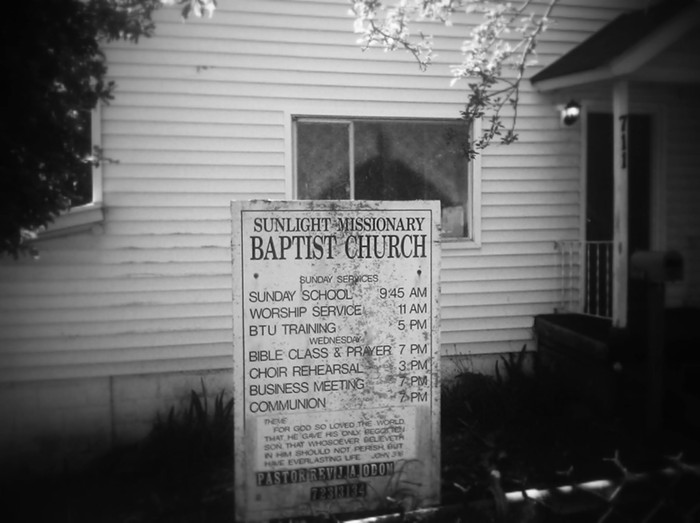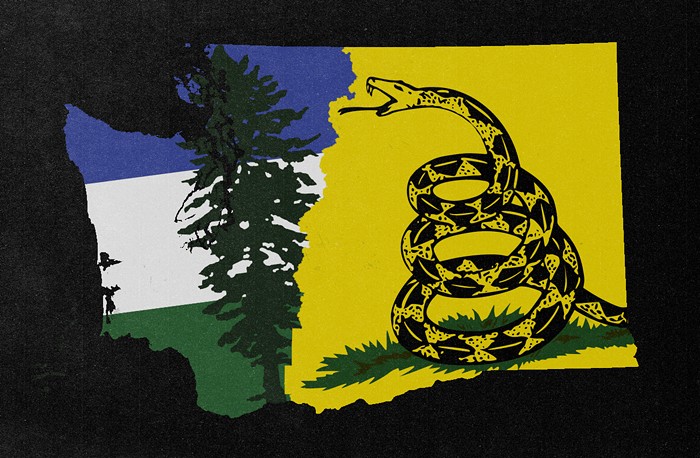
Last Thursday, while Americans bit their nails over the possible repeal of Obamacare, the Senate quietly voted to repeal rules that prevent internet companies from selling our browsing history. On Tuesday, the House passed the repeal. This is the first of what will be many attacks on internet usage by the Trump administration. While we must fight these changes at the federal level, we can also protect ourselves locally. One of the best ways to protect Seattle would be to create a city-run internet utility.
Seattle was moving fast to create municipal internet up until 2013. That momentum abruptly ended with the election of our current mayor, whose election campaign received donations from Comcast and CenturyLink. Murray has ruled out the possibility of a fully public internet service as being too expensive. He’s talked about but never acted on the possibility of a
Before Murray and before Trump, Seattle pursued municipal internet not because of attacks on privacy, but as a way to protect consumers—especially the many Seattle residents who had only one choice of high-speed internet provider—and ensure that low-income households could afford access. Internet access has become important in day-to-day life, whether it’s doing homework, applying for a job, or paying your bills. It makes sense to treat it as a basic utility, like electricity and water. Despite this, Americans pay more for their internet (and get slower speeds) than most other developed countries.
The federal privacy rules were created because internet providers were starting to sell information on Americans’ browsing habits. This information was available to anyone—not just advertisers, but also employers, landlords, curious family members, and so on. Providers were even using tricks to track people who tried to maintain their privacy by clearing cookies or browsing in private/incognito mode.
Tracking web searches is just the beginning. Trump has appointed an outspoken critic of net neutrality as the head of the Federal Communications Commission (FCC). Net neutrality is what ensures that the internet doesn’t turn into a censored, pay-for-service product like cable television. When you pay for an internet connection, you get access to the entire internet. If net neutrality rules are repealed, your internet provider could pick and choose which sites you can access. You might have to pay extra for your favorite food blog or news site, and the extra fee wouldn’t go to those websites. It would go to your internet provider.
As mayor, I would create municipal internet in two stages. The first stage would be for the city to buy or build fiber connections to homes and businesses, while allowing internet, television, and phone companies to use those connections for a fee. Right now, each high-speed internet company needs their own private lines; it’s as if each faucet company needed to build their own water mains. Similar mechanisms have been used in the past to open up markets for DSL internet service providers over older copper telephone lines. With fiber lines open for competition, we would gain a mix of internet providers. This means more options for price and privacy. If needed, the next stage would be to create a city-run internet provider that competes with the private options.
Our mayor has misleadingly called municipal internet a tax increase, but in fact it's a utility fee. Just as with utilities such as electricity, water, and sewer, most cities fund municipal internet with bonds that are paid off by usage fees. Studies under both mayors before Murray indicate that a two-stage approach would be cheaper and much less risky than Murray’s approach. Our next mayor will need to update the decade-old cost estimates for this lower-risk approach in order to propose a funding strategy.
With all Trump’s FCC has in store for us, municipal internet is needed more urgently than ever. We need to start living in the 21st century. Internet is, and should be, a utility; everyone needs access to all of it. The way we make that happen is for Seattle to have a robust municipal network, with policies in place to protect our privacy and freedom.
Andres Salomon is a candidate in the 2017 Seattle mayoral race. He is a father, long-time safe streets advocate, leader in open-source software, and former CTO of an internet provider.














